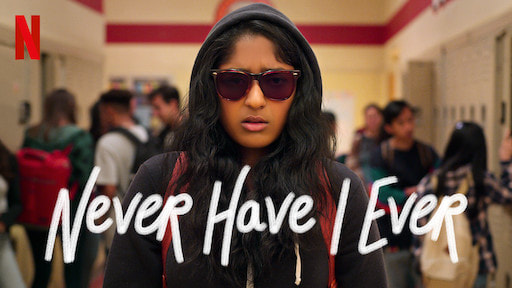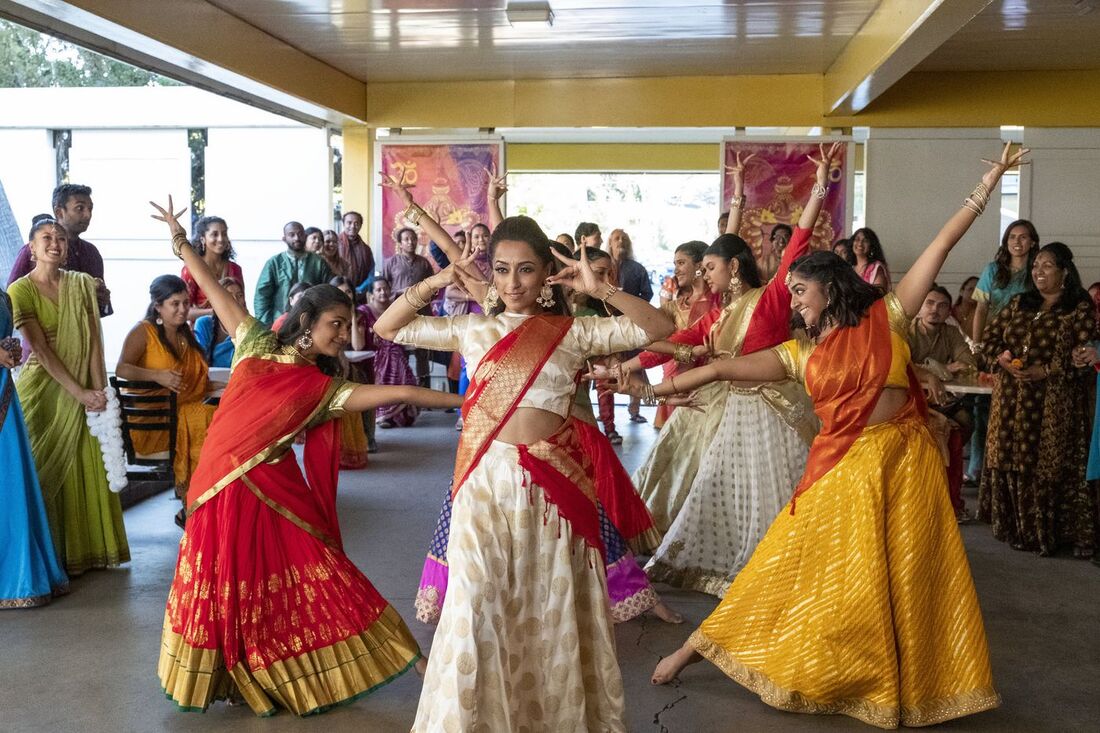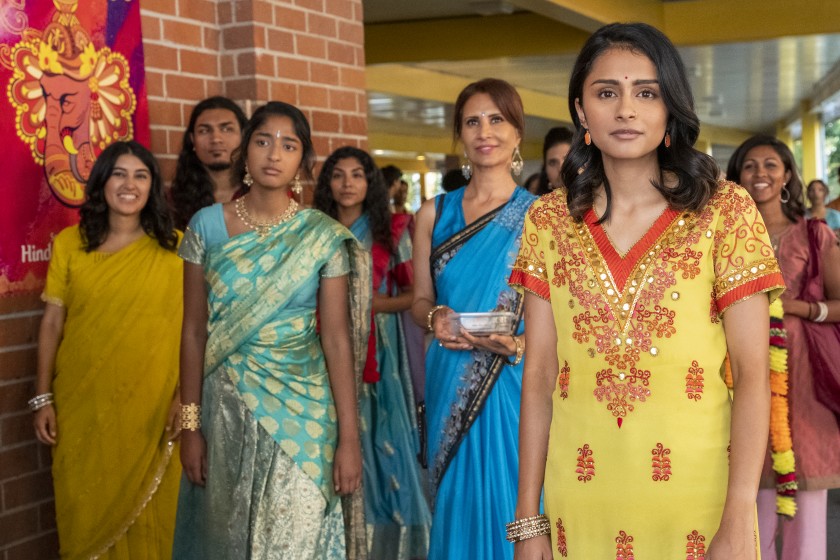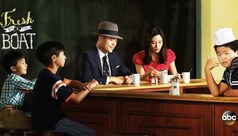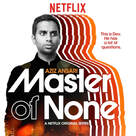|
by Akshata Atre Representation is all the rage on TV nowadays. Well, at least for Netflix. So it wasn’t really surprising to learn that Mindy Kaling was approached by Netflix to write a semi-autobiographical show about the Indian-American experience. When I first heard about the show, I was pretty excited. The only other piece of Western media about an Indian girl I can think of is Bend It Like Beckham. (Which, by the way, is amazing, and I will forever stand by that, aside from the very disappointing ending, but that has more to do with my love for Keira Knightley, so not super relevant here.) ANYWAY, back to the show at hand (titled Never Have I Ever, which provides for a series of cutesy “...episode titles”). Like I said, when I heard about the show, I was very excited. I love Mindy Kaling, and I trusted that she would write a funny, relatable show. But then I watched the trailer and it was just . . . not at all what I was expecting. It was all shirtless boys, friend drama, teenage angst-- just basically a standard teen romantic comedy drama. Save for a few snippets of a Ganesh puja, it was all just so . . . generic American high school. Nothing seemed really specific to the fact that the main character, Devi, is Indian. I was really hoping that the show itself would prove me wrong. But, unfortunately, it didn’t. The first two episodes in particular were extremely off-putting. Devi’s fervent pursuit of a boyfriend in order to “get over” the tragic loss of her father, after which she was psychosomatically paralyzed for months, was extremely emotionally jarring. But on top of that, aside from her brief conversations with her mother about her “blessed” textbook (which felt like a weird stereotypical jab), I felt as though Devi could easily have been replaced with any number of white actresses in those first few episodes. Episode 4, “Never Have I Ever. . . felt super Indian,” was one that I thought would turn the show around (at least in my eyes). The episode is about Devi attending a Ganesh puja held by the local South Indian association. Devi is super unhappy about going, because she’s the type of Indian girl who isn’t super thrilled about the fact that she has to participate in Indian traditions. Which is a completely fair take, especially since Kaling said that this particular attitude is one she had growing up in an extremely white community. There are a couple of characters at the event that sort of call Devi out on her attitude (one of whom alludes to Kaling’s own experience with a college roommate who was very proud of her Native American heritage, making Kaling question her own relationship to her heritage) but Devi doesn’t buy into it. She remains semi-embarrassed about her presence and participation in the event and uncomfortable about her itchy sari. This dual-culture dilemma is something that almost all first generation Indian-American kids struggle with. People approximately fall along a spectrum ranging from “trying to ignore the fact that they’re Indian and changing their name to something American” to “being super proud and wearing a lengha to school on Diwali.” There’s ultimately no right answer to where people end up-- a lot of it is based on where you grew up and if there were other Indian kids at your school. But what didn’t gel with me was the fact that Devi was suddenly super cool with the fact that she was wearing a sari when her main love interest, Paxton, said that it looked good. I don’t really know how to articulate how that whole interaction made me feel other than to say it was. . . icky. Overall, although I did enjoy the jokes about aunty gossip and how no one understands what pujaris say, the episode just felt like a rehashing of Kaling’s “Diwali” episode of The Office. Which is a great episode, it’s just kind of specific to the time in which it was made (the episode aired in 2006). So I was hoping we could move beyond the stereotypical jokes about Indian parents wanting their kids to get married and just generally being hella judgemental. I would have loved to hear more about the girls in the episode who tell Devi that their Bollywood dance teams compete at a national level, instead of remaining focused on Devi’s negative judgements about that accomplishment. And again, while I get that this episode was meant to reflect Kaling’s struggles with accepting her culture, as someone who has felt embarrassed about wearing a salwar kameez in public, it would have been really nice to see desi kids in a show being proud of their heritage in less of a vignette/side-plot type of way. An amazing dance performance . . . and then Devi (in the turquoise sari) judging it. I think that Kaling’s own struggle about her cultural identity is the reason why this show feels more aspirational than representational. In her interview on Fresh Air, Kaling herself said that she never had a boyfriend in high school, in part because she was forbidden from dating, but that she remained boy-crazy. So by making this show about Devi pursuing (and ultimately ending up with two) non-Indian love interests, it almost feels like Kaling wrote a story about what she wishes her high school experience had been like. And that experience, as my mom put it after she watched the show, is what Indians of her generation thought American high schools were like based on reading Archie comics. That is to say, the show doesn’t reflect the reality of life in an American high school, or the reality of the first generation Indian-American experience. Aside from what might have been Kaling’s own personal aspirations, the whole show overall felt like it was written not for Indian-Americans, but for white people. So many of the show’s jokes scream “look at me, I’m just like you. . . I’m just brown.” It feels like Devi is (or at the very least the show’s writers are) constantly trying to prove that she’s just like any other female lead in a John Hughes movie or a DCOM. Which is what I mean by saying the show is aspirational. It’s aspiring to a reality where white people think that immigrants have similar life experiences to them. But that’s not always the case. And it’s TOTALLY FINE and HEALTHY to acknowledge that. This is the same reason why Kelly Kapoor and Tom Haverford (characters from The Office and Parks and Recreation, respectively) hardly ever acknowledge the fact that they’re Indian. Both Mindy Kaling and Aziz Ansari (the actors who portray these characters) grew up in predominantly white communities and really just wanted to fit in. But it’s not the 80s anymore, and if Kaling really wanted to represent modern teenagers like she has said, I think her sensibilities about racial relations in America (at least regarding South Asians) could have evolved in parallel to the show’s writing about Instagram and internet slang. We’ve moved beyond the need to prove that Indian-Americans can “fit in.” We don’t need to show that Indian-American teenage girls can be “complicated” in the ways that characters in teen rom-coms are. What we need is a show about how we're complicated in our own ways, and how those complications do, in fact, relate closely to our heritage and relationships with our communities. Being Indian is not, as one Vanity Fair writer so eloquently put it, “just one aspect of the general bullshit” that Indian-Americans have to “put up with.” A person’s culture is a part of who they are, not something that should be perceived as forced upon them. And to depict it as the latter does more harm than good. This is why I feel that shows like Fresh Off the Boat and Kim's Convenience have been more relatable and enjoyable than Never Have I Ever and Ansari’s more adult Master of None. These shows take the time to flesh out all the members of the families around which they are centered, and as such provide a more multifaceted and complex depiction of what it is like to be a first-generation immigrant. Within the Huang family on Fresh Off the Boat, for instance, we get to see the range of how immigrant children relate to their heritage-- Evan and Emery follow their mother Jessica’s approach to tradition and schooling, while Eddie immerses himself in the music of Tupac Shakur and The Notorious B.I.G. Even the parents reflect this dichotomy; the father, Louis, really tries to fit into the Orlando community by opening a country-themed steakhouse while Jessica remains committed to imparting Taiwanese traditions to her children. It should be noted that these shows also enjoy a great deal of controversy in their respective communities-- Eddie Huang, whose book Fresh Off the Boat inspired the TV show, feels that it does exactly what I have just criticized Never Have I Ever for doing. This all goes to say that it’s hard to write shows that appeal to all members of the first-generation, broadly Asian, immigrant community. The lead actress of Never Have I Ever, Maitreyi Ramakrishnan, wrote that the show only tells the story of one Indian-American girl’s experience, and that “there are still many stories waiting to be told.” While that may be true, I still feel justified in my frustration that Never Have I Ever was the first show to try to give us that representation. I’d like a show that doesn’t call me out for not having had a “typical” American high school experience full of parties, friends, school trips, and cringey romantic interactions. I think a family show, for instance, would be better than a To All the Boys I've Loved Before-type show about an erratic and sometimes downright unlikable teenage girl. For instance, Never Have I Ever only has one Indian-American teenage boy with a speaking role, and he disappears altogether after his one minute of screen time. And Devi’s father is only ever shown in flashbacks. So, as Ramakrishnan said, there are a LOT of other stories to be told. I just wish-- and really feel like they could have-- been told in this show. Because representation really matters, and it’s more than just putting a person of color in a leading role. While researching for this piece, I came across this really great quote from Jean Yoon, the actress who plays Umma on Kim's Convenience: “It’s really important to have representation because people who don’t see themselves on screen start to feel invisible and their stories are not understood by others, and it’s really easy to sort of slide into this place where you stop recognizing your own value.” I have, at many moments in my life, felt invisible and misunderstood, in part because I felt so alone in my experiences regarding my relationship with my parents, the constant pressure I put on myself to do well in school, and my struggles to communicate with my family back in India. And watching Never Have I Ever didn’t make me feel less alone. And that kind of sucks, because I fall smack dab in the middle of the very specific target demographic for this show. But it’s not all a downer. ABC is reportedly moving forward with a show centered around an Indian-American family as a spinoff of Fresh Off the Boat (as of October 2019). The characters that will star in the show have actually already appeared on an episode of FOTB, and the actress set to play the mother is none other than Preity Zinta, who was one of my FAVORITE Hindi film actresses when I was younger. (Like, I can’t even begin to express what a huge star she is, she’s amazing.) So while Never Have I Ever may not have given me the representation I was looking for, I think there’s hope yet for a show that does provide a more complex and holistic insight into the Indian-American experience. And it might be with Preity Zinta!
0 Comments
Leave a Reply. |
Archives
March 2024
Writers
All
|
